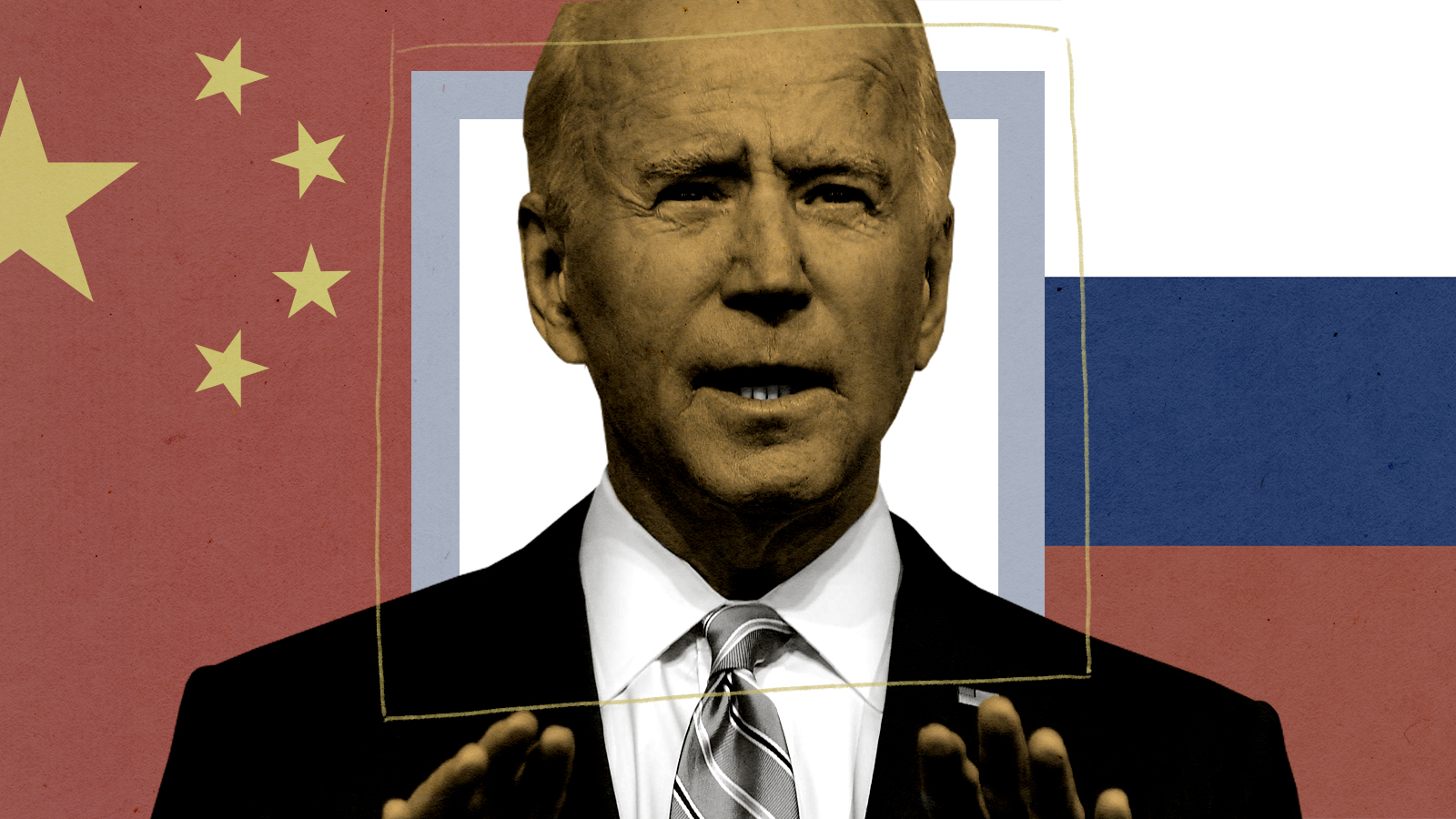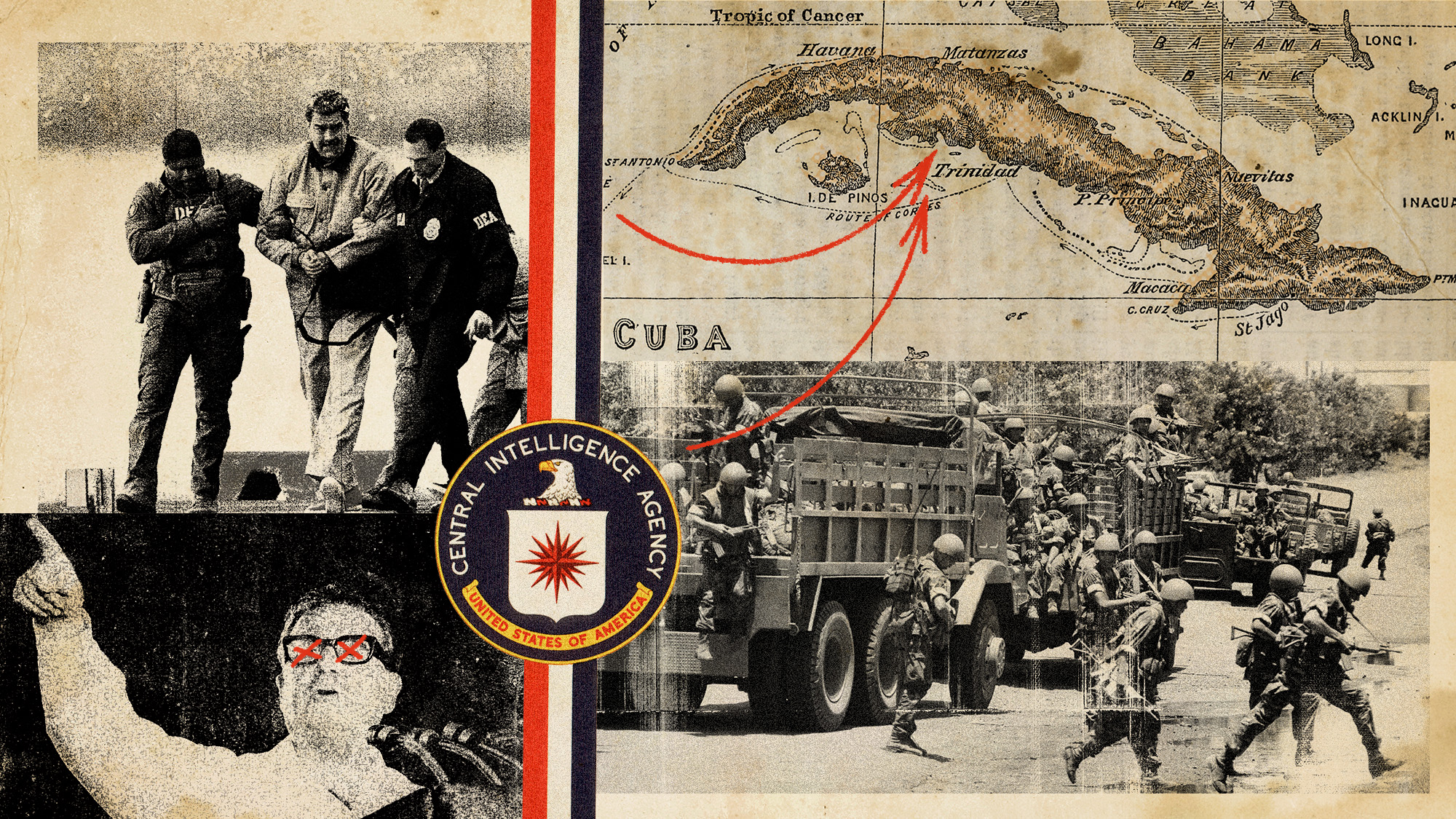Americans are dangerously casual about war with Russia and China


A free daily email with the biggest news stories of the day – and the best features from TheWeek.com
You are now subscribed
Your newsletter sign-up was successful
The war in Afghanistan was the longest in U.S. history. The war in Iraq has killed perhaps as many as a million people. U.S. support for the Saudi-led coalition intervention in Yemen's civil war contributed to the most acute humanitarian crisis on the planet. These and other U.S. military misadventures of the past two decades will cost us, and our children, and our children's children trillions of dollars.
But, as wars go, these were easy — for us. The fear of a large-scale terror attack that was widespread after 9/11 quickly faded. There were no home front deprivations. Schoolchildren didn't practice hiding under desks. We hung no blackout curtains. We were never at risk of invasion or airstrike. Indeed, our enemies in these last two decades generally had no airpower, let alone ballistic missiles capable of crossing the Atlantic. The war on terror has been long, brutal, and costly, but there was never a scenario in which we would be conquered.
That recent history, argued writer Freddie deBoer on Substack on Tuesday, has left too many Americans dangerously naïve and casual about war with Russia and China, nations far closer to being our military peers:
The Week
Escape your echo chamber. Get the facts behind the news, plus analysis from multiple perspectives.

Sign up for The Week's Free Newsletters
From our morning news briefing to a weekly Good News Newsletter, get the best of The Week delivered directly to your inbox.
From our morning news briefing to a weekly Good News Newsletter, get the best of The Week delivered directly to your inbox.
[W]e've gotten to a point where so many people feel comfortable getting cavalier about war with Russia. Yes, of course the Commentary crowd is raring to jump into a war that generations grew up dreading. But there's a remarkable amount of mainstream fervor for being "strong" and "assertive" with Russia right now, and I can only guess that it largely stems from the fact that we've been insulated from the horrors of war really since Vietnam, thanks to the unipolarity of the post-Cold War world, the remarkable advances in emergency medicine made in the past 50 years, and our increasing focus on a "nimble" army. These things have made conflict easier to bear for a citizenry that, in turn, doesn't fear conflict the way it should. [Freddie deBoer, on Substack]
In his conclusion, deBoer turns from the recklessness of the commentariat to that of the general public, whom he chastises as a "distracted and desensitized country that can't remember the horrors of combat" and will now perhaps be led into great power conflict by leaders whose own families will be insulated from its destruction.
I can't deny that this dark forecast is plausible, or that the public has some degree of moral culpability for the callowness deBoer observes. Still, I hope the lesson won't be written in blood.
A free daily email with the biggest news stories of the day – and the best features from TheWeek.com
Bonnie Kristian was a deputy editor and acting editor-in-chief of TheWeek.com. She is a columnist at Christianity Today and author of Untrustworthy: The Knowledge Crisis Breaking Our Brains, Polluting Our Politics, and Corrupting Christian Community (forthcoming 2022) and A Flexible Faith: Rethinking What It Means to Follow Jesus Today (2018). Her writing has also appeared at Time Magazine, CNN, USA Today, Newsweek, the Los Angeles Times, and The American Conservative, among other outlets.
-
 The Week contest: AI bellyaching
The Week contest: AI bellyachingPuzzles and Quizzes
-
 Political cartoons for February 18
Political cartoons for February 18Cartoons Wednesday’s political cartoons include the DOW, human replacement, and more
-
 The best music tours to book in 2026
The best music tours to book in 2026The Week Recommends Must-see live shows to catch this year from Lily Allen to Florence + The Machine
-
 ‘The mark’s significance is psychological, if that’
‘The mark’s significance is psychological, if that’Instant Opinion Opinion, comment and editorials of the day
-
 Big-time money squabbles: the conflict over California’s proposed billionaire tax
Big-time money squabbles: the conflict over California’s proposed billionaire taxTalking Points Californians worth more than $1.1 billion would pay a one-time 5% tax
-
 Did Alex Pretti’s killing open a GOP rift on guns?
Did Alex Pretti’s killing open a GOP rift on guns?Talking Points Second Amendment groups push back on the White House narrative
-
 Washington grapples with ICE’s growing footprint — and future
Washington grapples with ICE’s growing footprint — and futureTALKING POINTS The deadly provocations of federal officers in Minnesota have put ICE back in the national spotlight
-
 Trump’s Greenland ambitions push NATO to the edge
Trump’s Greenland ambitions push NATO to the edgeTalking Points The military alliance is facing its worst-ever crisis
-
 Why is Trump threatening defense firms?
Why is Trump threatening defense firms?Talking Points CEO pay and stock buybacks will be restricted
-
 A running list of the international figures Donald Trump has pardoned
A running list of the international figures Donald Trump has pardonedin depth The president has grown bolder in flexing executive clemency powers beyond national borders
-
 A running list of US interventions in Latin America and the Caribbean after World War II
A running list of US interventions in Latin America and the Caribbean after World War IIin depth Nicolás Maduro isn’t the first regional leader to be toppled directly or indirectly by the US
